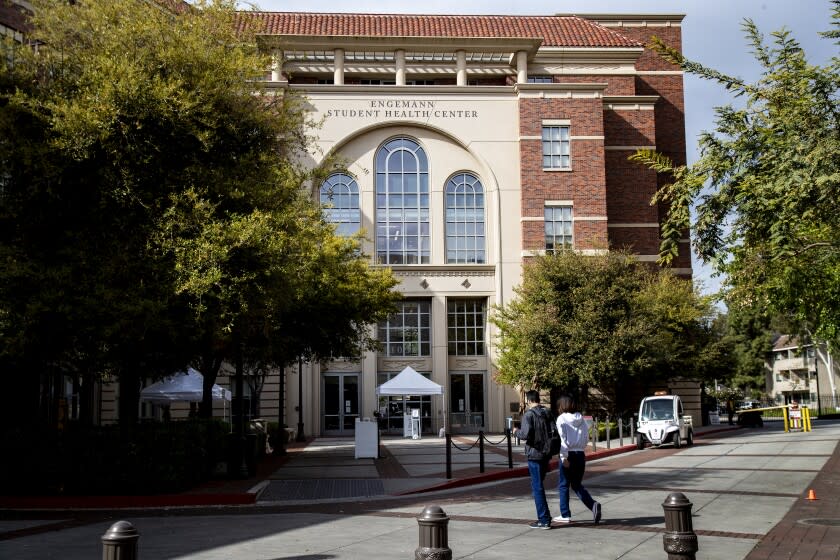USC makes confidential settlement with 80 students, many LGBTQ, who accused doctor of misconduct

The University of Southern California has agreed to settle claims from 80 former patients, most identifying as LGBTQ, who accused a men's health physician of misconduct — although the terms of the settlement remain shrouded in secrecy.
In a joint statement released Thursday, USC and lawyers for the alleged victims of Dr. Dennis Kelly said that "all parties have mutually agreed that the details of the settlement will remain confidential." The statement continued: "The parties hope that this amicable resolution will bring closure to the plaintiffs."
The settlement brings to a close a series of lawsuits that were first filed in 2019 and grew to 80 former patients accusing Kelly of sexual battery, harassment and inappropriate remarks during appointments. Four of the plaintiffs identified as heterosexual, and 76 as LGBTQ; one plaintiff identified as male at the time of the appointment with Kelly but now identifies as a woman, said Mikayla Kellogg, one of the lead attorneys in the case.
Some former patients alleged that after learning they had sex with other men, Kelly asked a series of intrusive, prurient questions, such as how much pornography they consumed and whether they “hooked up” with sexual partners online. One former patient told The Times in 2019 that he felt unnerved when Kelly "just sat there staring" at him while he undressed and accused the doctor of graphic, "judgmental" lines of questioning during his appointments.
From depositions, interviews with witnesses, and a review of scores of documents, Kellogg said, USC had received complaints about Kelly "throughout the course of employment." The most serious complaint was relayed to the university's chief health officer in "a face-to-face meeting" by a senior USC administrator.
"Despite this complaint, USC continued to allow Dr. Kelly to see students for sensitive medical exams," Kellogg said.
Kelly, who retired from USC in 2018 and surrendered his medical license two years later, has denied allegations of inappropriate behavior and neither USC nor the physician admitted wrongdoing as part of the settlement announced Thursday. In a 2019 interview, Kelly said that as an openly gay physician who dedicated his career to giving counsel to LGBTQ students, the lawsuits' claims were "terribly hurtful."
“I know I did it all professionally and without any other motive," Kelly said at the time.
The quiet resolution of claims against Kelly contrasts with widely publicized settlements with thousands of former patients of Dr. George Tyndall, which exceeded $1.1 billion. In the Tyndall cases, USC did not impose confidentiality provisions except on a small group of former patients. When the final Tyndall settlement was announced last year for $852 million, both President Carol Folt and the chairman of USC's trustees, Rick Caruso, issued public statements of apology. "The amount is significant, and we will face some difficult financial choices in the near term," Folt said at the time.
Asked Thursday how a confidential settlement served USC's commitment to transparency and accountability, a university spokesperson declined further comment.
John Manly, the lead attorney representing former patients of Tyndall, blasted the university for withholding the sum it was paying to end sexual misconduct litigation.
"This is not a chemical company — this is an entity funded by hundreds of millions of dollars in public money, financial aid, government grants, Medicare payments. The vast majority of USC's budget is paid by public money," Manly said. "What confidence does the public have when they systematically engage in these confidential settlements?"
This story originally appeared in Los Angeles Times.

